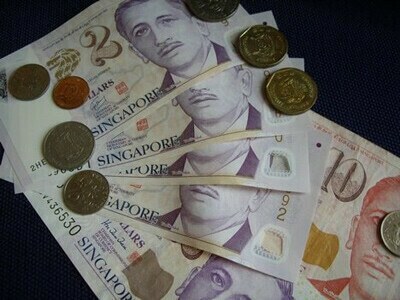
BENGALURU: Asian emerging market currencies were on the back foot on Monday against a broadly stronger dollar as investors bet an attack on former US President Donald Trump boosted chances of his re-election in November, stoking fears of instability.
The prospect of such a return to the White House after the attack is intensifing investors’ worries that Trump’s hawkish trade policy, loose regulation and fiscal plans, and potential tax cuts could fan inflation and push back rate cuts.
The dollar was last trading at 104.210 against a basket of major currencies. While cash US Treasuries were untraded in Asia due to a holiday in Japan, the 10-year Treasury futures trended lower.
“I see the odds of the Trump trade getting reinforced over the next few months till November, unless the Democrats can come up with a really credible alternative,” said Hemant Mishr, chief investment officer at S Cube Capital in Singapore.
“I would bet on high growth, high inflation trades – financials and energy to do well, and negative for Asian currencies.”
The South Korean won fell as much as 0.6% to 1,383.40, its lowest since early July, while the Thai baht and the Philippine peso lost about 0.3% each.
The Indonesian rupiah declined 0.3% as well after an eight-day rally until last Friday, ahead of the central bank’s monetary policy meeting set for Wednesday.
“The weakness in the rupiah today is likely after the strong payback it has had over the month of June over concerns of potential fiscal slippage under the Prabowo administration,” said Khoon Goh, Asia research head at ANZ.
Bank Indonesia (BI) is widely expected to hold interest rates at 6.25% at this week’s meeting, but might cut by 25 basis points next quarter, a Reuters poll showed.
“BI will want to ensure the rupiah can recover or stay stable … They would not want to pre-empt easing before the US Federal Reserve does,” Goh added.
Equities in emerging Asian countries were mixed, with shares in Malaysia up 0.4%, while those in Taiwan and Thailand were down roughly half a percentage point.
The Philippine benchmark index was up as much as 1%, trading roughly around its highest level since early May.
Last week, Eli Remolona, the governor of the Bangko Sentral ng Pilipinas (BSP), said the central bank had more scope to cut interest rates at its next meeting in August. Analysts widely expect the next move to be a rate cut.
China, the region’s biggest trading partner, reported second-quarter economic growth that was much slower than expected, keeping alive expectations that Beijing will need to inject even more stimulus to boost growth.
The Chinese yuan slipped off a one-month high against the dollar touched in the prior session, while the Shanghai Composite index was trading slightly higher.
